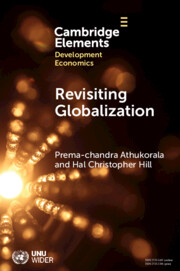Refine listing
Actions for selected content:
1299955 results in Books

Adaptations in the Life and Work of Director Tian Qinxin
- Coming soon
-
- Expected online publication date:
- April 2026
- Print publication:
- 30 April 2026
-
- Element
- Export citation

A Philosopher Looks at the Weather
- Coming soon
-
- Expected online publication date:
- April 2026
- Print publication:
- 30 April 2026
-
- Book
- Export citation

Aviation English as a Global Lingua Franca
- Coming soon
-
- Expected online publication date:
- April 2026
- Print publication:
- 30 April 2026
-
- Element
- Export citation

The Imago Dei
- A Holistic Account
- Coming soon
-
- Expected online publication date:
- April 2026
- Print publication:
- 30 April 2026
-
- Element
- Export citation
Ecology and Climate in Theatre and Australian Performance
- Coming soon
-
- Expected online publication date:
- April 2026
- Print publication:
- 30 April 2026
-
- Book
- Export citation
An Ocean of Rumours
- News and Information in the Atlantic World
- Coming soon
-
- Expected online publication date:
- April 2026
- Print publication:
- 30 April 2026
-
- Book
- Export citation

Boundaries of Belonging
- Sectarianism and Statecraft in the Early Modern Ottoman Empire
- Coming soon
-
- Expected online publication date:
- April 2026
- Print publication:
- 30 April 2026
-
- Book
- Export citation
Hematopathology and Coagulation
- Self Assessment and Board Review
- Coming soon
-
- Expected online publication date:
- April 2026
- Print publication:
- 30 April 2026
-
- Book
- Export citation
The Political Thought of Nineteenth-Century Spanish America
- Coming soon
-
- Expected online publication date:
- April 2026
- Print publication:
- 30 April 2026
-
- Book
- Export citation

The Astronomy of Hipparchus
- An Annotated Translation of and Introduction to the Commentary on the Phenomena of Aratus and Eudoxus
- Coming soon
-
- Expected online publication date:
- April 2026
- Print publication:
- 30 April 2026
-
- Book
- Export citation

Nordic Capitalism
- Lessons for Realizing Sustainable Capitalism
- Coming soon
-
- Expected online publication date:
- April 2026
- Print publication:
- 30 April 2026
-
- Book
- Export citation

Revisiting Globalization
- Southeast Asia in the Global Factory
- Coming soon
-
- Expected online publication date:
- April 2026
- Print publication:
- 30 April 2026
-
- Element
- Export citation

The Modernist Wish
- A History of Europe, 1914-1939
- Coming soon
-
- Expected online publication date:
- April 2026
- Print publication:
- 30 April 2026
-
- Book
- Export citation

Tipping Out of Trouble
- How Societies Transformed and How We Can Do So Again
- Coming soon
-
- Expected online publication date:
- April 2026
- Print publication:
- 02 April 2026
-
- Book
- Export citation
Sex, Gender Identity and the Law
- Coming soon
-
- Expected online publication date:
- April 2026
- Print publication:
- 30 April 2026
-
- Book
- Export citation
Reading Linear B
- Coming soon
-
- Expected online publication date:
- April 2026
- Print publication:
- 30 April 2026
-
- Textbook
- Export citation
Design Your Future
- The Innovative Career and Transition Guide
- Coming soon
-
- Expected online publication date:
- April 2026
- Print publication:
- 30 April 2026
-
- Book
- Export citation

The Public Pension Crisis
- Contractual Rights and Constitutional Limits
- Coming soon
-
- Expected online publication date:
- April 2026
- Print publication:
- 30 April 2026
-
- Book
- Export citation
Interpreting Sellars
- Critical Essays
- Coming soon
-
- Expected online publication date:
- April 2026
- Print publication:
- 30 April 2026
-
- Book
- Export citation

Critical Friendship in the Modern World
- Coming soon
-
- Expected online publication date:
- April 2026
- Print publication:
- 30 April 2026
-
- Book
- Export citation
